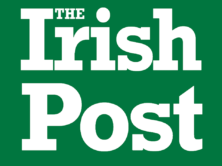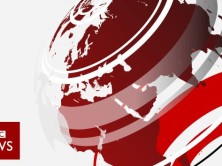(Credit: Amazon, screenshot)
Chimpanzee expert Jane Goodall apologized after the Washington Post discovered that her forthcoming book, Seeds of Hope: Wisdom and Wonder From the World of Plants, co-written by Gail Hudson, fails to attribute “at least a dozen passages.”
According to the Post, its book reviewer spotted the attribution problems. “An expert in botany invited by The Washington Post to review ‘Seeds of Hope’ noticed some of the echoed passages, notified the editors and declined the assignment,” the Post explained.
There may also be problems with quoting and fake interviews. Aside from the lack of citations and attribution, the Post reported that botanist Matt Daws, who is quoted in the book, says he has “no recollection of speaking to” Goodall.
For a side-by-side comparison of the types of attribution and plagiarism issues, the Post offered several examples including this quote from Goodall’s book which lifts verbatim from a website. Goodall’s book:
“According to Oxfam, a British nonprofit agency working to put an end to poverty worldwide, the spraying of pesticides on tea estates is often done by untrained casual daily-wage workers, sometimes even by children and adolescents.”
The website for Choice Organic Teas, a company that has ties to Goodall, shows those exact words, reading:
“According to Oxfam, a British non-profit agency working to put an end to poverty world-wide, the spraying of pesticides on tea estates is often done by untrained casual daily wage workers, sometimes even by children and adolescents.”
Goodall told the Post she was “distressed” by the attribution issues and apologized. She is quoted as saying:
“This was a long and well researched book and I am distressed to discover that some of the excellent and valuable sources were not properly cited, and I want to express my sincere apologies. I hope it is obvious that my only objective was to learn as much as I could so that I could provide straightforward factual information distilled from a wide range of reliable sources.”
And the book’s publisher Grand Central told the Post it will add credits “in subsequent releases.” The Washington Post also noted that the book has “no end notes, bibliography or source references.”
The Guardian noted that “it is not clear yet” if the questionable parts of the book “were written by Goodall…or by co-author Hudson” but that it reached out to the Jane Goodall Institute to ask.
iMediaEthics has written to the Jane Goodall Institute and Goodall’s publisher Grand Central seeking more information about the missing attribution, the lack of end notes, the plans to add crediting, and who contributed the questionable portions of the book. An email has also been sent to Daws seeking more information. We’ll update with any responses.
Check out the Washington Post’s full report with more examples of the attribution and plagiarism.
Hat Tip: New York Times
UPDATE: 3/20/2013 11:26 AM EST: Our email to Daws bounced back.
UPDATE: 3/20/2013 3:39 PM EST: Claire Jones from the Jane Goodall Institute provided iMediaEthics with Goodall’s “public statement” in response. Check it out below:
“I wrote SEEDS OF HOPE in order to share, with as many people as possible, my love and fascination for the world of the plants and to draw attention to the harm that we humans are inflicting on that world. It was a journey of exploration for me.
“During extensive research I spoke to as many experts as possible. I also visited numerous websites dedicated to celebrating, protecting and preserving the plants of the world. This was a long and well researched book, and I am distressed to discover that some of the excellent and valuable sources were not properly cited, and I want to express my sincere apologies. I hope it is obvious that my only objective was to learn as much as I could so that I could provide straightforward factual information distilled from a wide range of reliable sources.
“I will, of course, mention and correct the missing citations on my JGI website blog and will have them corrected in future publications of the book.
“I hope as many people as possible will read this book as I want to share all the amazing things I have learned about the plant kingdom. Only when we all act together can we ensure that our great grandchildren can inherit a healthy planet.”
UPDATE: 3/20/2013 11:42 PM EST: Sophie Cottrell, Communications Director VP for the Hachette Book Group, responded to iMediaEthics’ inquiry with a statement:
“As we have already stated, we are reviewing this matter with the author and have no further response at this time.”





